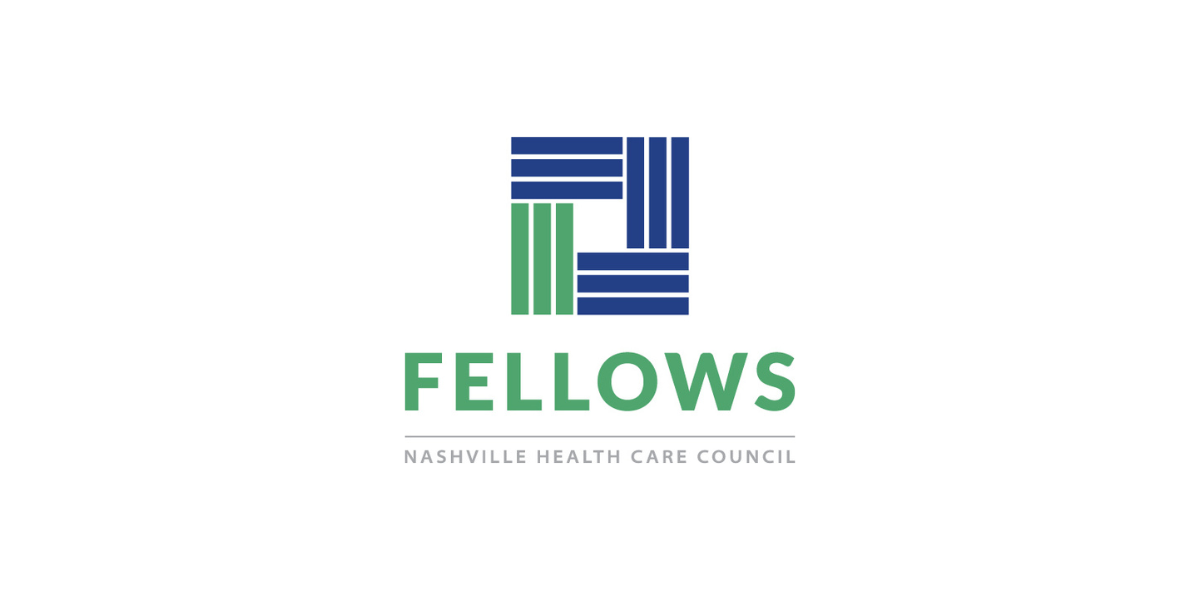From Coverage to Coordination: Council Fellows Alumni Dinner Explores What’s Next in Healthcare
Nashville Health Care Council's Fellows Alumni Dinner
The Nashville Health Care Council’s Fellows Alumni Dinner series provides an intimate setting for Fellows to develop and maintain strong connections with industry-leading peers beyond their time in the program. The fireside chat was moderated by Travis Messina, CEO at Regent Surgical and featured Jonathan Blum, Non-resident Scholar, USC Schaeffer Institute & Former Principal Deputy Administrator & Chief Operating Officer, CMMS, following opening remarks by NHCC President Apryl Childs-Potter. The dialogue reflected the complexity and urgency of today’s healthcare challenges and was a reminder that Council Fellows graduates aren’t just navigating change, but driving it.
Value-Based Care Needs a Reset
While value-based care remains a central focus of policy and industry efforts, there is a growing recognition that the original cost-saving expectations must be re-evaluated. Blum emphasized how a consistent definition of “value” is still lacking across the industry, with responses varying widely across providers, payers, and patients. He noted that stakeholders interpret value differently, which makes consistent implementation and measurement difficult.
Blum shared that many value-based models have not yet yielded significant savings, but they have revealed that patients often need more care once fully engaged rather than less. Medicaid and Medicare Advantage were identified as areas where value-based care is most complex.
Workforce Shortages are the Industry’s Most Time-Sensitive Challenge
Staffing challenges, especially clinical shortages, were named as a critical constraint on progress. The conversation also highlighted the morale crisis among healthcare teams, especially related to under funding and regulatory uncertainty. A call for interagency coordination to develop staffing pipelines and support infrastructure was discussed.
During the Q&A portion of the evening, an attendee voiced concerns that workforce challenges are under-address in federal policy, with limited solutions from D.C. Blum acknowledged the disconnect, noting the CMS often designs financial incentives but leaves workforce implementation to health systems.
Fragmented Data and Care Coordination Undermine Progress
Despite investments in digital infrastructure, care remains disjointed, especially for high-need populations. Blum outlined the fragmented patient experience, highlighting patients with multiple chronic conditions who may have multiple care coordinators across different organizations. When each organization uses its own system and approach, communication is not integrated and may even conflict.
Blum emphasized the healthcare system’s failure to define clear roles for stakeholders is a key factor when examining interoperability issues. Until the roles and responsibilities of providers and health plans are more clearly defined, interoperability and patient outcomes will suffer. Interoperability is not only technical connectivity, but also functional alignment across care teams.
When patients are “bombarded” by multiple systems and voices, they can become overwhelmed, particularly those with the most complex needs. Blum shared that the system is much more overlapped and more fragmented today than it was 10-15 years ago.
The topic of interoperability resonated with many in the room. Attendees expressed frustration that innovation in AI and interoperability is moving faster than federal policy and operational adoption. Blum suggested that interoperability solutions will only work if supported by clarity in healthcare delivery and accountability models.
Simplifying Healthcare for the Patient
The evening concluded with a shared recognition: it must be easier for patients and families to navigate the health system. Simplifying patient navigation and streamlining reimbursement processes were framed as vital to future success across the healthcare ecosystem.
Messina, Blum, and many Fellows in attendance agreed and stressed the importance of simplicity. Reducing administrative burden, improving access, and eliminating delays are critical to building trust and improving patient outcomes.
Blum shared that the number one theme I hear from both parties is: make the healthcare journey simpler. Break down complexity. Cut the time it takes to access care. Council Fellow alums were encouraged to frame their advocacy in terms of efficiency. This aligns with the current administration’s business-minded focus.
Closing Remarks
The Council Fellows Alumni Dinner highlighted the vital role Council Fellows play in leading through uncertainty. As healthcare faces a new wave of structural, political, and technological change, the evening’s conversation underscored the need for clarity, coordination, and compassion. Blum’s candid reflections, paired with engaged discussion, emphasized the responsibility Fellows carry in shaping what’s next.
This signature event brings together a multi-generational cohort of leaders across the healthcare ecosystem, serving as both a reunion and a strategy session for navigating the future of care.
Thank you to our sponsor: Buffkin / Baker
About the Nashville Health Care Council
The Nashville Health Care Council strengthens and elevates Nashville as The Healthcare City. With a $68 billion economic impact and 333,000 jobs locally, Nashville’s healthcare ecosystem is a world-class healthcare hub. Founded in 1995, the Council serves as the common ground for the city’s vibrant healthcare cluster. The Council offers engagement opportunities where the industry’s most influential executives come together to exchange ideas, share solutions, build businesses and grow leaders.


